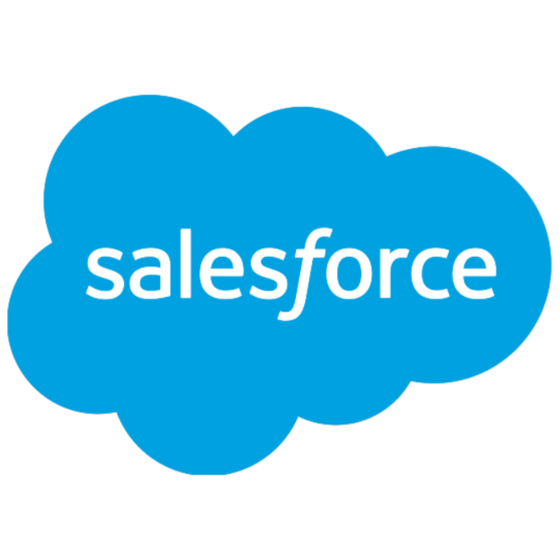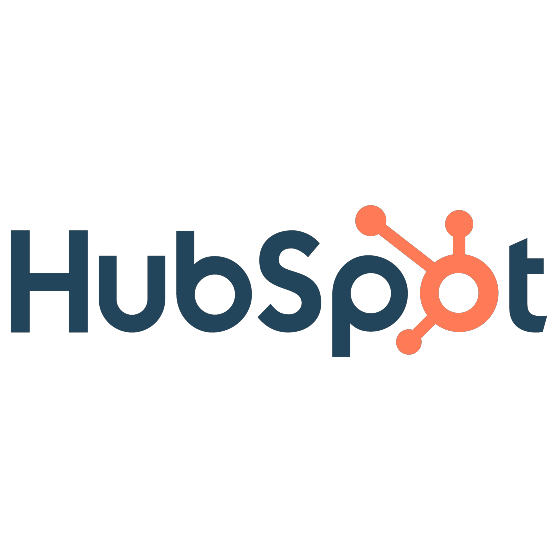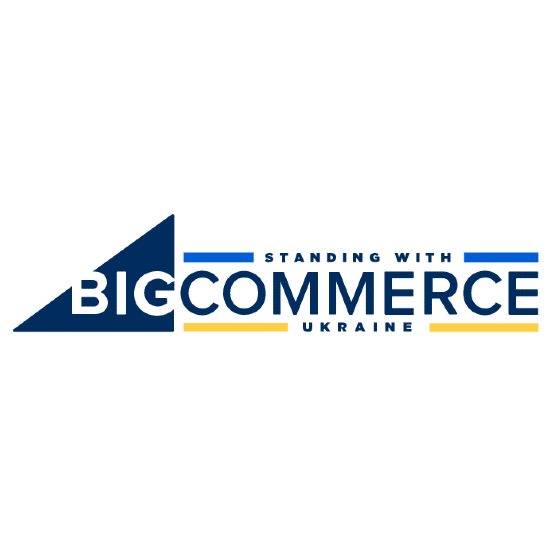10 Best Ecommerce Marketing Tools List
Here's my pick of the 10 best software from the 22 tools reviewed.
Our one-on-one guidance will help you find the perfect fit.
There are so many different marketing solutions that making a shortlist of the best can be tricky. You want to plan, deploy, and track your ecommerce product marketing campaigns—and now need the right tool for your store and team. I've got you covered! In this post, I share from my personal experience managing online commerce operations, using many different ecommerce marketing platforms with large teams, and share my picks of the best ecommerce marketing tools overall.
What are Ecommerce Marketing Tools?
Ecommerce marketing tools are specialized software designed to help online businesses promote their products and services, attract customers, and boost sales. These tools encompass a range of functionalities including search engine optimization (SEO), email marketing, social media management, content creation, and analytics. The purpose is to enable businesses to effectively target and engage with their audience, analyze market trends, and measure the impact of their marketing strategies.
Overviews Of The 10 Best Ecommerce Marketing Tools
Here’s my list of the 21 best ecommerce marketing tools you can choose from:
Salesforce CRM is a market leader in CRM solutions and is currently one of the best eCommerce marketing tools in the market. Salesforce CRM helps businesses create and track marketing campaigns.
Salesforce’s Marketing edition unifies and connects a user’s data to enable personalized interactions, allowing marketers to better manage customer loyalty. Marketers can also use Salesforce to automate engagement, optimize marketing using intelligent insights, and personalize the customer experience through their Salesforce Genie. Another unique feature is their mobile marketing capability that allows you to send SMS and MMS to customers to notify them about certain programs, like loyalty programs and other marketing efforts.
Companies can sign up for Salesforce’s products to build their solution according to the products they need. All the information from each module is combined into one dashboard to take advantage of automation to track emails and calls. When used together, Salesforce’s products allow companies to close deals fast, with easy access to data using the Salesforce mobile application. Businesses using Salesforce can also take advantage of their marketing analytics, customer engagement, loyalty management, and other add-on features if they opt to purchase them.
Salesforce CRM offers integrations with many third-party applications, as well as with social media platforms such as Facebook, Twitter, LinkedIn, and Instagram. This allows users to easily monitor conversations about their brand across multiple channels and respond quickly to questions or complaints. Salesforce also integrates natively with Slack, since they recently purchased that platform directly.
Unfortunately, there is no straightforward way of identifying the cost of each product since everything is sold individually to provide users with a personalized platform. Salesforce’s main marketing product is also sold individually and it is necessary to contact the company to get an accurate quote for the product.
HubSpot Marketing is SaaS product that's designed to help businesses of all sizes manage and automate their marketing campaigns. It's particularly useful for ecommerce businesses, as it offers a range of features that can help you attract visitors, convert leads, and close customers.
HubSpot Marketing is not just about sending emails or posting on social media—it's about creating a comprehensive marketing strategy that covers all bases. There are a few standout features that I think really make HubSpot Marketing shine. First off, there's the email marketing feature. It's super easy to create beautiful, responsive emails that look great on any device. Plus, you can personalize your emails based on any contact information you have, which can really help to boost engagement.
Another feature I love is the landing page builder. It's drag-and-drop, so you don't need any coding skills to create stunning landing pages. Plus, you can test different versions of your landing pages to see which one performs better, which is a great way to optimize your marketing efforts. The basics of the landing page builder are free to use. You'll also have access to conversion analytics and SEO suggestions.
HubSpot Marketing integrates with Gmail, WordPress, Facebook Ads, Google Ads, Outlook, Eventbrite, GoToWebinar, Salesforce, Supermetrics, Databox, and others. You can integrate with over 1000 other apps using Zapier, but this requires a separate subscription and may incur additional costs.
Textedly is a text message marketing platform that allows businesses to send SMS and MMS messages to their customers. It's designed to help you engage with your audience, promote your products, and even handle text-to-pay transactions. With Textedly, you can create and manage your text message campaigns, track their performance, and even schedule messages to be sent at specific times.
I chose Textedly as one of the best ecommerce marketing tools because it offers a unique and effective way to reach customers directly. In today's world, people are constantly on their phones, and text messages have a much higher open rate than emails. This makes Textedly a powerful tool for ecommerce businesses looking to boost their marketing efforts and stay connected with their audience. Plus, it's super easy to use and has a ton of features that make it stand out from other tools in the market.
Several features make Textedly stand out as a top ecommerce marketing tool. First, it offers unlimited subscribers, so you can grow your audience without worrying about hitting a cap. It also provides detailed analytics, allowing you to track the success of your campaigns and make data-driven decisions to improve your marketing efforts.
Another great feature is the ability to send multimedia messages (MMS), which can include images, videos, and even GIFs. This adds a visual element to your marketing campaigns and can help grab your audience's attention. Textedly also offers a keyword feature, allowing customers to text a specific keyword to your number to opt-in to your messaging list. This makes it easy for people to proactively opt-in in a way that is appropriate for most customer messaging privacy laws.
Integrations include Slack, Salesforce, Hubspot, Intercom, Pipedrive, Shopify, Mailchimp, Facebook Lead Ads, Google Sheets, Google Docs, Google Calendar, WordPress, Zoho CRM, Helpscout, Twitter, and others. You can unlock further integrations using Zapier, but that requires a separate subscription and may incur additional costs.
Mobile Text Alerts is an SMS marketing and automation platform that provides a suite of features you can use to connect with customers through text messages. The software's automation capabilities help you streamline your SMS marketing efforts and build smart drip campaigns to nurture your customer base.
Some of the ways you can use this tool are to schedule messages, bulk-send texts to large groups, and create smart replies. You can also use it to craft more personalized messages by syncing contact data from your other tech tools. MMS messaging is available to send multimedia marketing communications, and you can use the two-way texting capabilities for more interactive experiences for your customers.
Its in-depth data analytics and AI technology help you stay ahead of the curve and data-driven. Other cool features are mobile surveys, automated messages, text-to-join options, and customizable keywords for automated responses or alert sign-ups. The mobile app is available for both Android and iOS devices, and integrations can be configured using a paid Zapier account.
Paid plans start from $25 per month, and a 14-day free trial is available.
BigCommerce is an ecommerce platform offering a wide range of features such as payment processing, order management, inventory tracking, and product pages. The software comes with built-in SEO features that help users optimize their websites for search engine rankings. This means customers searching for products related to their business will find their website easier and faster.
BigCommerce allows users to easily manage products and inventory with its intuitive dashboard. This includes being able to add or remove products in just a few clicks, as well as setting up product categories and collections for easy sorting. All of this makes it easy for customers to find what they’re looking for without getting overwhelmed by too many choices. Users can also create discount codes, set up shipping rules, and track customer orders all within the same interface.
BigCommerce has powerful marketing automation capabilities that allow users to automate some of the more tedious tasks associated with running an e-commerce store. This includes setting up automated emails that are sent out when customers purchase products or sign up for newsletters, as well as automated social media posts that are triggered when certain conditions are met. This helps merchants save time while still keeping their customers engaged with their brand on multiple channels.
Features include customizable templates, built-in SEO, marketing tools, shipping & fulfillment, inventory management, reporting features, mobile-friendly design, responsive checkout, multiple payment gateway options, extensive third-party integrations, and 24/7 customer support.
Integrations include LiveChat, ShipStation, Georgias, Mailchimp, Quickbooks Online, Yotpo Product Reviews, Justuno, Brightpearl, Acumatica, ActiveCampaign, Hubspot, Klavyio, Shopgate, Printify, and dozens of other apps.
Funnel is a marketing and data collection tool you can use to help you formulate your marketing campaigns. You can export data from Funnel to any analytics or reporting tool to have meaningful data you can share with employees and stakeholders. If you want to study trends and buying patterns, Funnel keeps data from as far back as two years ago so you have historical data available.
Funnel is the best eCommerce marketing tool for you if you want to base your marketing strategy on a comprehensive database of customer preferences and buying patterns. You can choose from Funnel’s 500+ integrations to ensure that you’re using fresh data from the apps and social media platforms that your customers are using.
If you can’t find the app that you want to pull data from, you can send a request to Funnel and they can work with you on obtaining the data you need. You can integrate Mailchimp, Instagram, Twitter, Salesforce, Facebook, YouTube, and over 500+ other marketing, sales, and eCommerce apps.
Funnel pricing starts at $399/month for up to 5 seats.
Drip is a marketing automation tool that can help you craft your store’s interactions with leads and launch next-steps campaigns without live agent intervention. You can use Drip to produce new customer welcome series, win-back campaigns, and loyalty workflows. On top of that, Drip harnesses customer data and generates reports around what your audience is browsing, opening, clicking, and buying.
Drip lets you set your own automation rules so the system triggers a marketing action according to customer movement; for example, generating a welcome note for first-time visitors to your site. With Drip, you can automatically generate a follow-up message to a customer with an abandoned cart or alert a customer about a new product based on frequently-visited product pages.
Drip integrates with 100+ productivity apps including Zapier, Recart, Magento, and Shopify.
Drip pricing starts at $39/month and includes a 14-day free trial.
BigCommerce is a SaaS platform specializing in retail services including online store creation, search engine optimization, and web hosting. It boasts multichannel integration so you can run several online stores using just one BigCommerce account. It has powerful APIs so you can customize your store to fit the customer experience that your target market is looking for.
BigCommerce’s advanced yet easy-to-use promotions tools enable you to create discount options without the need for a third-party app. Because of how easy it is to create promotions and discounts using BigCommerce, you can run flash sales, BOGO, or discounts and then track usage metrics to see which is more appealing to customers.
BigCommerce pricing starts at $29.95/month for unlimited users.
Constant Contact is a marketing tool you can use to import customer data for use in your marketing campaigns. If you’re just starting your ecommerce business, you can use Constant Contact to create your eCommerce site with built-in marketing tools and plugins. I also recommend Constant Contact if you want to run your first email marketing campaign because it has built-in templates you can use to run your campaign easily.
If you want to tap the wide reach of social media platforms for your marketing activities then Constant Contact is the best marketing tool for you because it makes social media marketing easy even if you are not tech-savvy.
You can use Constant Contact to create and schedule social media posts so your customers receive constant updates about your store’s new products and promotions. Constant Contact allows you to create SEO-optimized Facebook and Instagram ads that create brand awareness and drive traffic to your online store increasing your chances of gaining new customers.
Constant Contact pricing starts at $9.99/month and offers a generous 60-day free trial.
Algonomy is a suite of digital retail apps that use AI to help you streamline your customers’ shopping experience. It has an exhaustive pre-built library of commerce strategies you can choose from with templates and built-in tips to help you activate them.
It also provides you with a centralized system to automate supplier-related processes like onboarding, order processing, and payments.
Algonomy is the best eCommerce marketing tool for you if you want to have a better grasp of who your market is because of its powerful customer analytics tool.
It can use your eCommerce site’s data to determine the age and demographics of your customers.
Algonomy uses real-time customer data so you can alter your product offerings depending on who your customers are at any given time.
Algonomy pricing is available upon request.
The 21 Best Ecommerce Marketing Tools Summary
| Tools | Price | |
|---|---|---|
| Salesforce CRM | From $25/user/month (billed annually) | Website |
| HubSpot Marketing | From $18/month | Website |
| Textedly | $26/month (500 msg) | Website |
| Mobile Text Alerts | From $25/month | Website |
| BigCommerce | From $29/month and 2.59% + $0.49/transaction | Website |
| Funnel | $399/month/account | Website |
| Drip | From $39/month | Website |
| BigCommerce | From $29/month (billed annually) | Website |
| Constant Contact | From $9.99/month | Website |
| Algonomy | No price details | Website |

Compare Software Specs Side by Side
Use our comparison chart to review and evaluate software specs side-by-side.
Compare SoftwareOther Options
Here’s a few more that didn’t make the top list.
- Clerk.io
Best for email marketing
- Klaviyo
Best for customer segmentation features
- Emotive
Best SMS marketing
- Namogoo
Best for customer hijacking prevention
- Blueshift
Best for predictive analytics
- Textmagic
Best for two-way SMS chat with customers
- Adriel
An easy-to-use marketing analytics platform that centralizes marketing insights.
- Keap
Email marketing platform for small businesses.
- ActiveCampaign
Cloud-based platform with CRM tools and marketing automation functionality.
- Helium 10
Software suite for advertising intended for Amazon sellers.
- Shopify Plus
Commerce platform for enterprise-level brands.
- Omnisend
Omnichannel marketing automation platform for email, SMS, pop-ups, segmentation, push notifications, and Facebook and Google ads.
Comparison Criteria
What do I look for when I select the best ecommerce marketing solution? Here’s a summary of my evaluation criteria:
- User Interface (UI): Ecommerce marketing tools are typically feature-packed with all sorts of frills and fluff. I want something laid out well that is easy on the eyes, despite the richness of the content.
- Usability: Ecomm marketing is hard enough as it is without campaign tools throwing off your groove; I look for software that is intuitive, offers plenty of customer support, and has a library of self-help resources.
- Integrations: Ecommerce marketing software needs to interconnect with the other platforms you are already using, like websites (WordPress, Shopify), social media (Facebook, Twitter), and sales/CRM (Salesforce, Hubspot), and inventory management/shipping (Zoho Inventory Management, Fishbowl Inventory).
- Value for Price: Ecommerce professionals range from industry titans to personal Etsy shops; I look for tools with multiple pricing plans that are practical and scalable according to individual needs.
Ecommerce Marketing Tools: Key Features
- Multi-channel publishing: Allows users to run marketing campaigns across different platforms including SMS, emails, and social media.
- Personalization: Allows users to personalize emails and text messages to solicit increases in engagement.
- Campaign analytics: Allows users to analyze buying patterns to determine which marketing activities generate the best results.
- Contacts Management: Allows users to maintain a database of customers and their contact information.
Other Ecommerce Marketing Software Reviews
Here are a few other lists of key ecommerce marketing software that you can consider for your overall marketing strategy.
- Marketing Resource Management Software
- Ecommerce Content Marketing Platforms
- Ecommerce Email Marketing Software
- Marketing CRM Software
- Marketing Automation Software
- Marketing Attribution Software
- Abandoned Cart Software
The Takeaway
Gaining new customers and generating more sales is the best way to grow your business and the right marketing software can help you do that. The ecommerce marketing tools mentioned above are all excellent options in their own right. You just need to decide which one will be the best fit for your business’ marketing needs.
Subscribe to The Ecomm Manager newsletter to keep abreast of other handy thought leadership posts or tool selection articles for the ecommerce industry.
Also Worth Checking Out: Three Types Of Tokenization For ecommerce, Explained




















